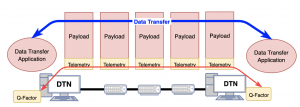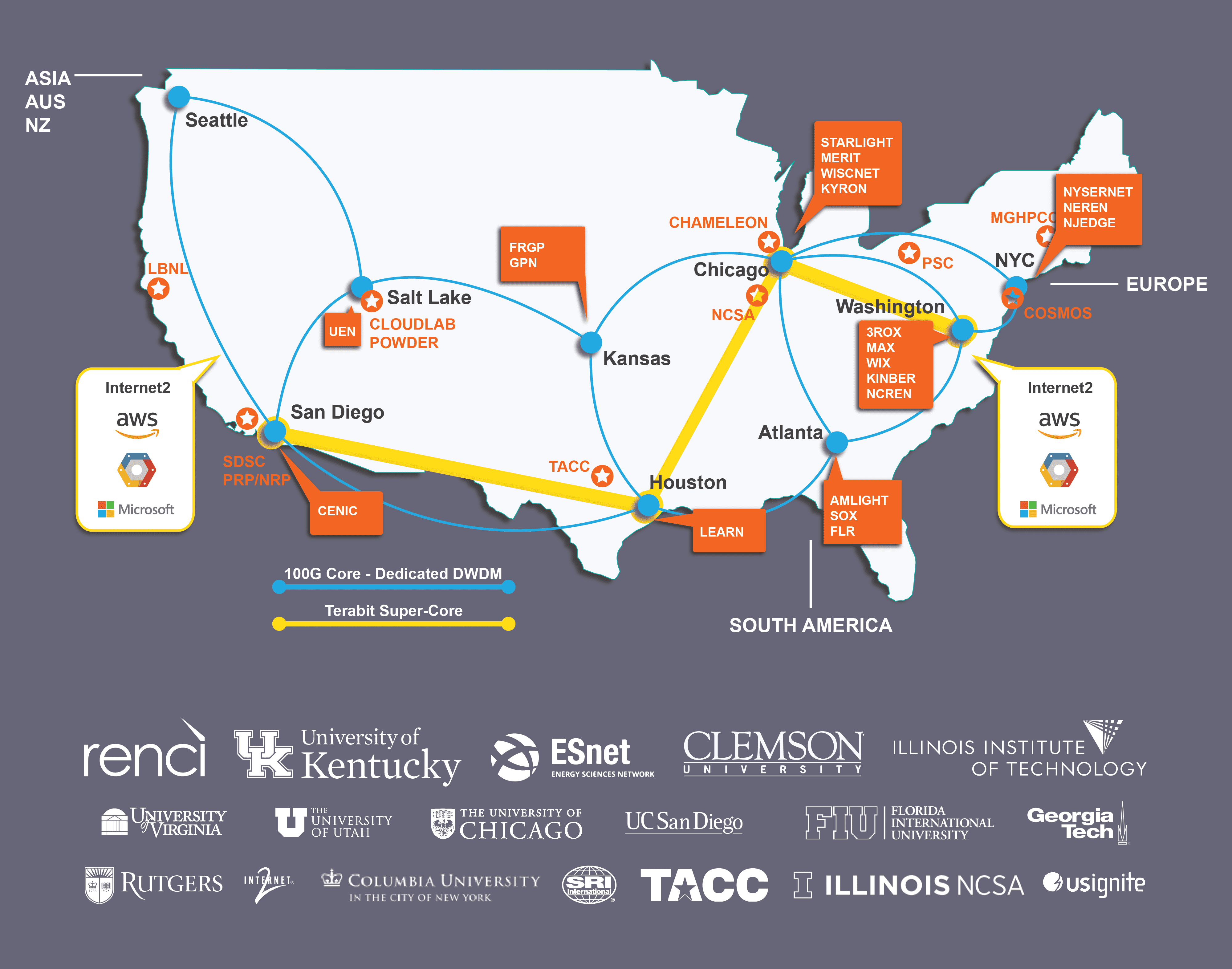Trusted CI webinar: Q-Factor: Real-time data transfer optimization, September 27th @11am Eastern
Members of FIU and ESnet are presenting the talk, Q-Factor: Real-time data transfer optimization leveraging In-band Network provided by P4 data planes, on Monday, September 27th at 11 am (Eastern). Our presenters are Jeronimo Bezerra, Richard Cziva, and Dr. Julio Ibarra.
Please register here.
Q-Factor is a framework to enable data transfer optimization based on real-time network state information provided by programmable data planes. Communication networks are critical components of today’s scientific workflows. Researchers leverage long-distance ultra-high-speed networks to transfer massive data sets from acquisition sites to processing sites and share measurements with scientists worldwide. However, while network bandwidth is continuously increasing, most data transfers are unable to efficiently utilize the added capacity due to inherent limitations of parameter settings of the network transport protocols and the lack of network state information at the end hosts. To address these challenges, Q-Factor plans to use sub-second network state data to dynamically configure current transport protocol and operating systems parameters to reach higher network utilization and, as a result, to improve scientific workflows. Q-Factor leverages programmable network devices with the In-band Network Telemetry (INT) framework and delivers a software solution to process in-band measurements at the end hosts. Using Q-Factor on end hots, for instance Data Transfer Nodes (DTN)s, TCP/IP parameters will be configured according to temporal network characteristics, such as round-trip time, network utilization, and network buffer occupancy. This tuning is expected to increase network utilization, shorter flow completion times, and significantly reduce packet drops caused by under-provisioned network buffers. Q-Factor is a collaboration between Florida International University and Energy Science Network.
Speakers Bio:
Jeronimo Bezerra is the FIU’s Center for Internet Augmented Research and Assessment’s IT Associate Director. Jeronimo has 19 years of IT and Network Engineering experience, most of them with R&E networks. He is responsible for AmLight network operation and engineering, including the SDN deployment and operation. He is leading the Q-Factor design, development, and deployment activities.
Richard Cziva is a software engineer at ESnet. He has a range of technical interests including traffic and performance analysis, data-plane programmability, high-speed packet processing, software-defined networking, and network function virtualization. Prior to joining ESnet in 2018, Richard was a Research Associate at the University of Glasgow, where he looked at how advanced services (e.g., personalized firewalls, intrusion detection modules, measurement functions) can be implemented and managed inside wide area networks with programmable edge capabilities. Richard holds a BSc in Computer Engineering (2013) from Budapest University of Technology and Economics, Hungary, and a Ph.D. in Computer Science (2018) from the University of Glasgow, United Kingdom. He will lead the research activities in Q-Factor.
As the Assistant Vice President for Technology Augmented Research at FIU, Dr. Julio Ibarra is responsible for furthering the mission of the Center for Internet Augmented Research and Assessment (CIARA) – to contribute to the pace and the quality of research at FIU through the application of advanced Cyberinfrastructure. Has 30+ years of IT and Telecom infrastructure management, 18 of those years of specialization with Research and Education networks and project management. Dr. Ibarra will be responsible for overall project management and coordination.
Join Trusted CI’s announcements mailing list for information about upcoming events. To submit topics or requests to present, see our call for presentations. Archived presentations are available on our site under “Past Events.”
Posted by Jeannette Dopheide here: https://blog.trustedci.org/2021/09/q-factor-webinar.html












